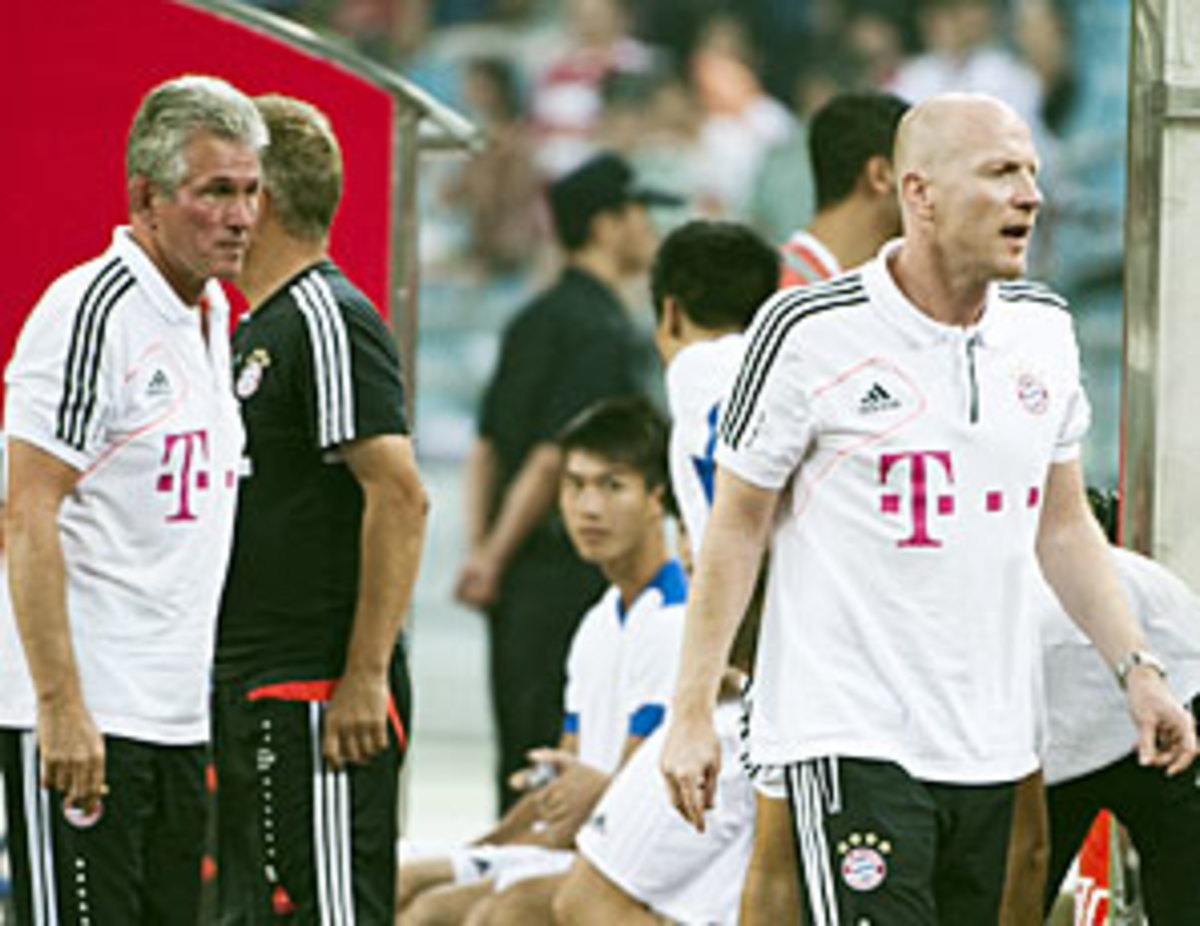Reeling Bayern welcomes turmoil in wake of Champions league defeat
Some games are never quite over. Bayern Munich's defeat in the Champions League final at the hands of Chelsea took two-and-a-half hours to play out but nearly three months later, its effects still linger at Säbenerstrasse. Even by the standards of Germany's most restless club, the offseason has been nothing short of tumultuous, marred by a wave of injuries, transfer market frustrations and staff changes. All it will take now is a sixth consecutive defeat against double winners Borussia Dortmund in the German Super Cup on Sunday night to plunge the Reds into full-blown crisis mode -- two weeks before the new season kicks off in earnest.
Sporting director Christian Nerlinger was the first to feel the bite. The 39-year-old executive was fired in early July over "differences in opinion" with the board, according to president Uli Hoeness. The diplomatic terminology hid dissatisfaction over Nerlinger's lack of success with high-profile transfer targets (Marco Reus, Leighton Baines, Mario Götze) and his somewhat detached, matter-of-fact demeanor. His passivity during the chaotic and ultimately disastrous penalty-shoot-out against the Blues reportedly enraged the bosses.
Nerlinger's successor, Matthias Sammer, the German FA's former sporting director, was an interesting choice. The ex-Germany and Borussia midfielder never played for Bayern and had in the past been critical of the club. The hiring of the driven, ambitious 44-year old signaled Bayern's intent to recapture its position at the top of the Bundesliga tree by any means necessary.
Manager Jupp Heynckes at first didn't seem enamored with the decision, and understandably so; the choice of Sammer was also a reflection of Heynckes' (perceived) failings. Heynckes, 66, who is in his last year in Munich, clearly was not fully trusted to motivate his club. Fears of a "lame duck" scenario likely also loomed large enough to see the installment of Sammer as a watchdog.
Sammer, a successful coach at Dortmund 10 years ago, has the distinct added advantage of being able to step in as a caretaker should Heynckes fail to deliver. With Sammer next to Heynckes on the bench, the board may be even more trigger-happy than usual.
If Sammer was supposed to bring a level of irascibility to the club, he's certainly had the desired effect. He openly disagreed with Hoeness over the president's criticism ("[Mario]'s good, but if he was very good, we would have won the Champions League. He is phlegmatic.") of striker Mario Gomez. And this week, Sammer had to address suspicions that he was responsible for the surprising resignation youth director Jörg Butt, who'd only started his job a couple of months ago. "I was very disappointed by Butt's decision," insisted Sammer. Süddeutsche Zeitung reported that the club had tried to change Butt's mind, but also hinted that the former keeper had come to realize that his sphere of influence had been curtailed by the arrival of Sammer. Former midfielder Wolfgang Dremmler, until now the chief scout at Bayern, will take over the youth department, where three new coaches have started in recent months.
One of them is Mehmet Scholl. The 41-year old is in charge of the B team but he will continue working as a TV expert. During the Euros, Scholl's criticism of Gomez ("he lies around so much that you're afraid he'll get blisters") had enraged some at the club. Hoeness' latest intervention, however, showed that Scholl's verdict was in fact shared upstairs. The debate, another fall-out from the Champions League final, would have raged a little longer if Gomez hadn't picked up an injury that will keep him out for a few weeks.
Left-backs Rafinha, David Alaba and Diego Contento are also likely to miss the start of the season, while Bastian Schweinsteiger, the man who embodied Bayern's traumatic end to the season, continues to be impaired by the very ankle problems that made him look a shadow of his former self in Poland and the Ukraine.
Schweinsteiger's travails have brought Bayern's frustration in the transfer market into sharp relief. A flurry of activity has so far failed to lure another high-caliber central midfielder to the Allianz Arena. Athletic Bilbao is still insisting on €40 million for Javi Martínez of Athletic Bilbao, and Leverkusen has rebuffed all advances for German international Lars Bender, who learned his trade at Bayern's local rivals 1860.
"It makes no sense to keep talking about these players," said Hoeness, in response to Bayern CEO Karl-Heinz Rummenigge's publicly stated optimism.
That little comment exposed the biggest, oldest and potentially most problematic fault-line within the club: Hoeness, officially no longer involved in the day-to-day affairs, is still flexing his muscles behind the scenes. The president's position looked weakened when his personal friend Heynckes failed to win a trophy, but the 60-year-old is sure to not simply retire to his Lake Tegernsee home. The introduction of Sammer has now added another explosive agent to what was already the Bundesliga's most volatile mix. Only time will tell if the idea that "friction" is conducive to success when it comes to football teams, a concept that was last popular in Germany in the early 90s, still holds true today.






